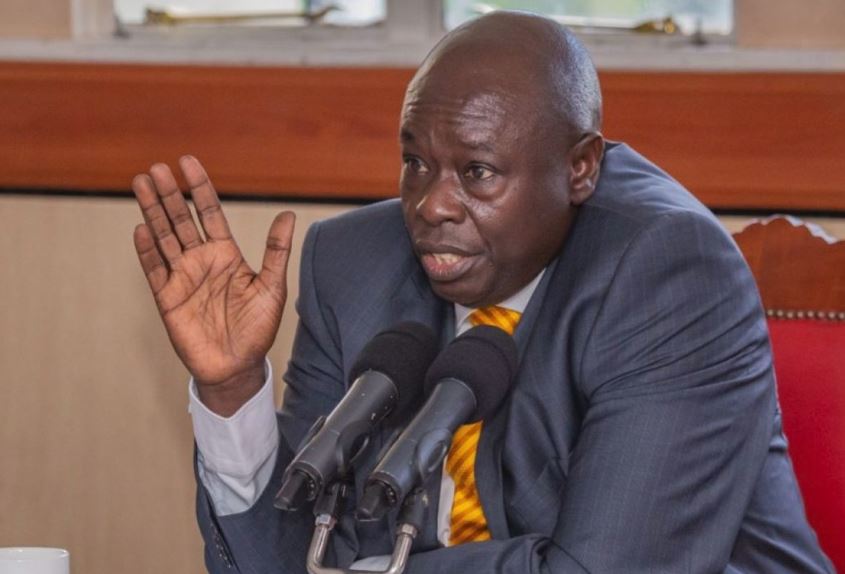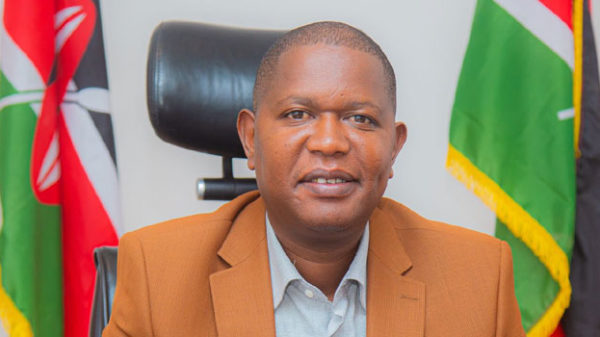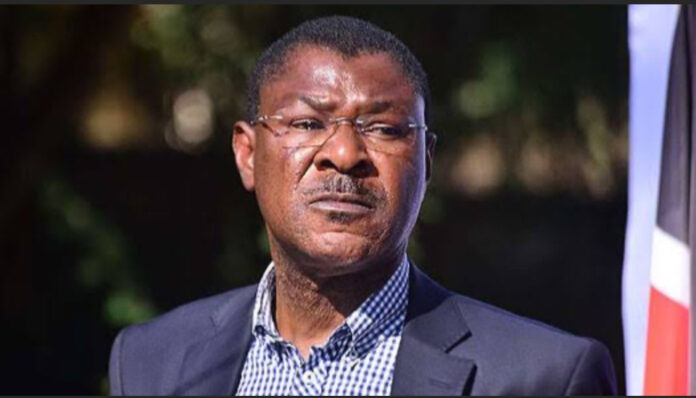National Assembly Speaker Moses Wetangula has officially invited Kenyans to participate in the ongoing discussions surrounding the special motion seeking the impeachment of Deputy President Rigathi Gachagua. In a statement released on Tuesday, Wetangula emphasized the importance of public input on this critical issue, underscoring that the motion would be distributed across all 47 counties for consideration.

Wetangula pointed out that the move aligns with Article 182 of the Kenyan Constitution, which mandates public involvement in legislative processes of national significance.
Highlights:
- Speaker Moses Wetangula calls for public participation on the Deputy President’s impeachment motion.
- Kenyans can submit their opinions online or physically by October 5.
- The impeachment motion, brought by MP Mutuse Mwengi, lists 11 grounds for DP Gachagua’s removal.
- Gachagua will be allowed to defend himself on October 8.
Public Participation Encouraged
Speaking during the announcement, Wetangula highlighted the importance of citizen engagement in the process, stressing that public participation is a constitutional requirement in matters of such national importance.
“In consideration of the special motion and the modalities of such an exercise, it would be absurd for any person to imagine that such a motion would be concluded without participation,” the speaker stated.
Kenyans are invited to express their opinions by sending their views online via email to [email protected]. Alternatively, physical submissions can be made at designated centres within their respective counties. Wetangula added that the deadline for online submissions is October 5 at 5 p.m., while physical submissions will close on October 4 at 5 p.m.
Grounds for Impeachment
The impeachment motion, tabled by Kibwezi West Member of Parliament Mutuse Mwengi, outlines 11 serious accusations against DP Gachagua. Among the charges are gross violations of the Constitution, undermining the authority of President William Ruto, and making inciteful statements that allegedly threaten national unity. Other accusations include illegally amassing wealth, violating the National Cohesion and Integration Act, and interfering with Nairobi County governance.

Mutuse also accused the deputy president of misleading the public on various critical matters, as well as going against the oath of office. The motion comes at a time of increased political tension within the ruling government, with critics arguing that Gachagua’s actions have strained relations between him and other government officials.
Gachagua’s Defence
In line with parliamentary procedure, Speaker Wetangula has confirmed that Deputy President Gachagua will be granted an opportunity to defend himself on October 8. Between 5 p.m. and 7 p.m., Gachagua can present his case either in person or through a representative. This step is crucial, as it allows the accused to counter the allegations made in the impeachment motion.
Once Gachagua presents his defence, members of Parliament will deliberate on the matter before taking a vote. For the motion to pass, it requires the support of two-thirds of the 349 MPs, which would amount to at least 233 votes in favour of the impeachment.
Background on the Impeachment Process
According to the Kenyan Constitution, the impeachment of a Deputy President is a complex process involving both the National Assembly and the Senate. If the motion garners enough support in the National Assembly, it will then proceed to the Senate for further deliberation. Historically, no deputy president has been impeached since the Constitution was enacted in 2010, making this an unprecedented moment in Kenyan politics.
READ MORE: DIAMOND PLATNUMZ EXPLAINS HOW SWISS BEATZ SAVED HIM FROM DIDDY’S SEXUAL CRIME ALLEGATIONS
The public now has an opportunity to weigh in on this matter, marking a significant step in the democratic process.
